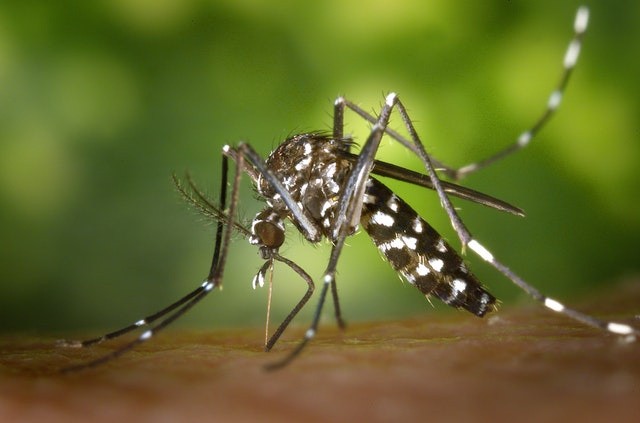After four horses in Wisconsin were diagnosed with Eastern equine encephalitis (EEE), the Wisconsin Department of Health Services (DHS) issued an advisory reminding people to take precautions to avoid mosquito bites.
According to the CDC, EEE is a virus-caused brain ailment that affects just a few people in the United Regions each year, with most cases happening in the eastern or Gulf coast states.

Eastern Equine Encephalitis
Eastern equine encephalitis (EEE) is an uncommon but dangerous and frequently fatal infection in horses that produces encephalitis or brain inflammation.
It is spread via the bite of an EEE virus-infected mosquito (EEEV). Mammals, birds, reptiles, and amphibians are among the creatures that can be infected with EEEV. The EEEV virus is transmitted to mammals (including people and horses) by infected mosquitoes that feed on both birds and mammals.
It's conceivable that some persons infected with EEEV won't show any signs or symptoms. However, after being bitten by an infected mosquito, symptoms of EEEV infection usually show 4-10 days later.

The sort of symptoms a person has is typically determined by their age. People over the age of 50 and those under the age of 15 are at the highest risk of acquiring a serious illness.
EEE infection causes severe headaches, high fevers, chills, and vomiting, leading to disorientation, seizures, encephalitis (brain inflammation), and coma in extreme instances. Approximately one-third of EEE patients die, and many who survive have mild to severe brain damage.
Read also: Plague 2021: Scientists Recorded Person-to-Person Transmission of Drug-Resistant Yersinia Pestis
Diagnosis
EEE is diagnosed based on the patient's clinical symptoms and a laboratory diagnosis, which includes analyzing blood or spinal fluids to see if the virus or antibodies are present.
EEE in Wisconsin

Mosquitoes are found in Wisconsin in 56 distinct varieties, and despite their annoyance, they are essential to the local environment. Unless you're a frog or a white-tailed deer, many don't even bite people and aren't harmful. Mosquitoes that do bite people, on the other hand, can be pretty deadly.
The EEE virus spreads from Culiseta melanura mosquitoes to people and horses in an unusual way: instead of moving straight from Culiseta melanura to H. sapiens, it percolates in the surrounding avian population for a period. To function as a "bridge" between sick birds and uninfected mammals, a new mosquito species must be used - one that bites people (or horses) - but even then, only four or five percent of those bitten would acquire EEE.
Rare BUT Deadly
Even though the illness is uncommon, it is nevertheless frightening. If you acquire it, there's a one-in-three chance it'll kill you within a few weeks, and even if it doesn't, you may end up unconscious or with long-term neurological problems. According to the CDC, patients who recover from EEE can have everything from severe intellectual impairment to personality problems, convulsions, and even cranial nerve dysfunction such as paralysis and numbness.
For more health and medicine related news, don't forget to follow Nature World News!
© 2025 NatureWorldNews.com All rights reserved. Do not reproduce without permission.





